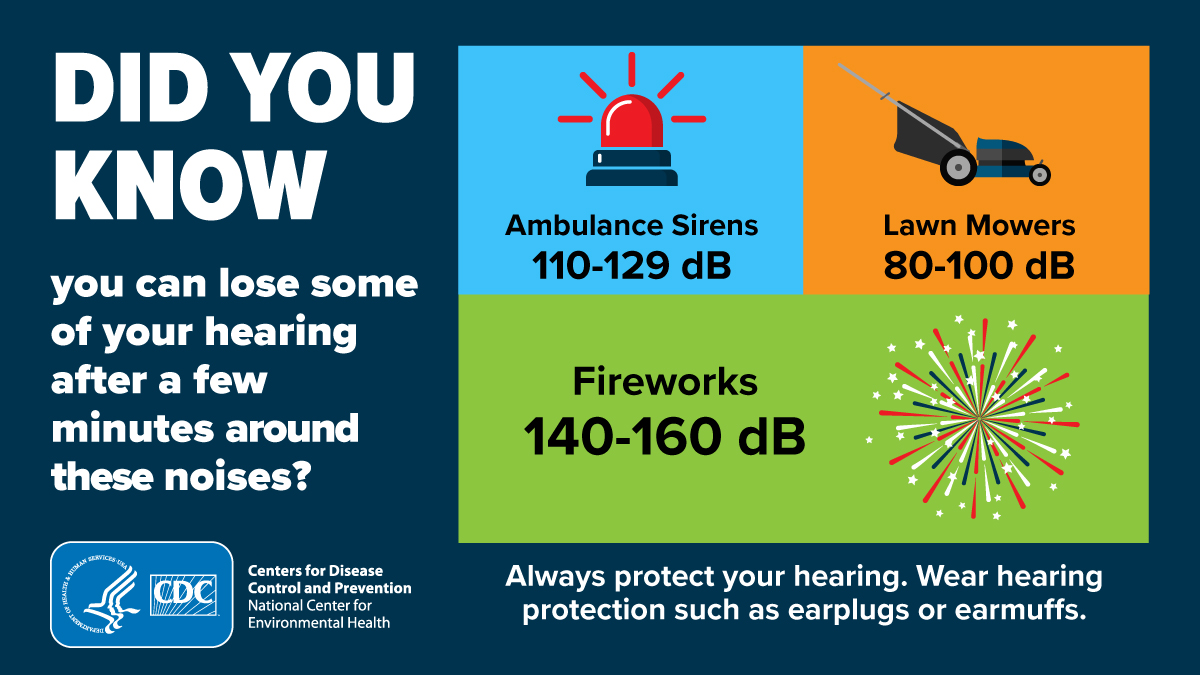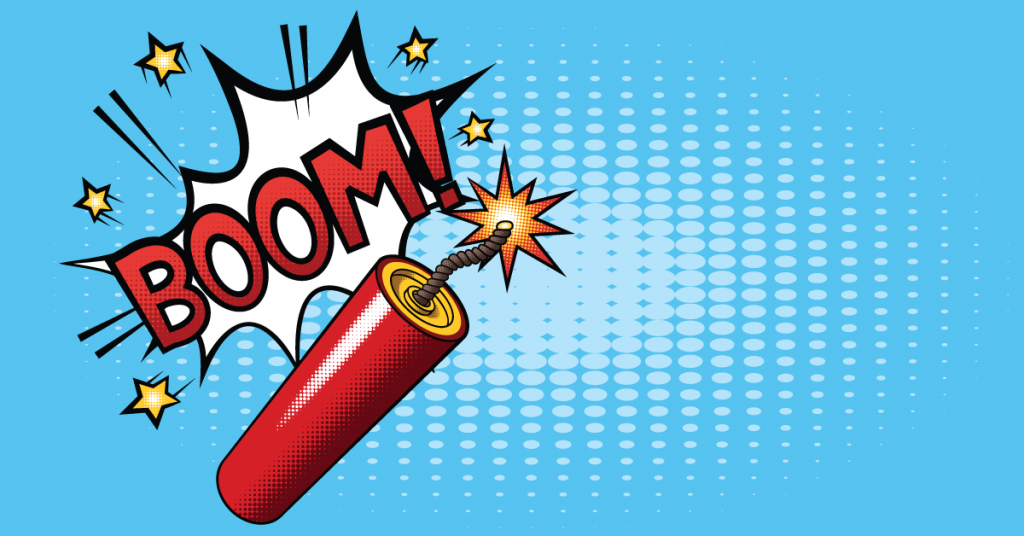Summer has arrived and it won’t be long until fireworks take center stage. It’s always good to be reminded of steps to keep ourselves and our loved ones safe.
Firework safety tips
- Always have a responsible adult supervise firework activities, including sparklers.
- Always wear eye protection while lighting fireworks.
- Always keep a safe distance from fireworks immediately after lighting them.
- Never point fireworks at another person.
- Never allow young children to play with fireworks.
We want to add to this list.
- Protect your hearing during the fireworks!
The power of noise

Outdoor activities can pose a significant threat to hearing health. More than 40 million Americans have some type of hearing loss, with approximately 10 million of those attributable to sound-induced hearing loss—exposure to loud sounds. The American Academy of Audiology states that prolonged exposure to sounds above 85 decibels can damage hearing; louder sounds damage hearing in a shorter period of time.
This type of hearing loss is caused by permanent damage to the tiny hair cells in our ears, known as stereocilia, from loud sounds. Because these hair cells are not replaceable and do not regrow, they cannot trigger signals to the brain that prompt us to hear. These hair cells can be damaged by harsh, loud noises, like gunshots or firecrackers, or continuous exposure to loud noises such as construction equipment or earbuds.
There’s no question that fireworks are loud. But when comparing backyard fireworks to professional displays, the American Academy of Audiology says that fireworks at home may do more damage. Plan ahead for safety and protection, whether you’re planning festivities at home or away.
Protect your hearing
Because hearing loss from loud noise is permanent, and most people don’t notice their hearing is damaged until it’s too late, the best course of action is awareness and prevention.
- Use hearing protection (like earplugs or earmuffs) when you must be near loud noises.
- Adults should wear earplugs.
- Children should wear earmuffs. Check out 3M Kids Hearing Protection.
- Do a soundcheck, that is, test the decibel level around you.
- Download the free NIOSH Sound Level Meter App to check the decibel level at any location, at any time. Higher than 85dB, you’ll want to think about hearing protection. Check the App Store and Google Play for other options.
- The farther you stand away from the fireworks, the better. Put distance between you and the fireworks. You’ll reduce your noise exposure but still enjoy the show.
- Cover your ears with your hands until you can move to a quieter location if you’re exposed to too much noise or caught without hearing protection.
Symptoms to watch for
Pay close attention to any muffled hearing, ringing or buzzing in the ears, or pain in the days following exposure to fireworks.
Additional symptoms of noise-induced hearing loss
- Sudden inability to hear birds, a doorbell, the telephone, an alarm clock, or other high-pitched sounds
- Hypersensitivity to certain sounds (very bothersome or painful)
- Turning up the volume of the television or radio
- Difficulty understanding phone conversations or conversations in noisy environments
- Trouble hearing speech consonants (e.g., trouble hearing the difference between s and f, between p and t, or between sh and th in speech)
- Asking others to speak more slowly and clearly
- Asking others to speak more loudly or repeat what they said
If you have any signs of hearing loss, please get in touch with us to request an appointment with one of our doctors.
